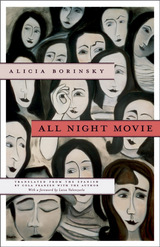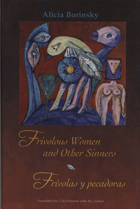

In this luminous work, Claudio Guillen meditates on the elusive field of comparative literature and its vicissitudes since the early nineteenth century. These pages ring with the authority of a scholar who has keenly observed his discipline during recent decades, when the predominant interest in contrasts, comparisons, influences, and interrelationships gave way to what Guillen terms "the systematic study of supranational assemblages."
This book is a powerful call to abandon the ethnocentric view of literature and to face the tension between the local and the universal. Guillen shows how literature catapults us into supranationality. Poetry provokes and inspires his reflections. Aiming to write a book that approaches the nations of the world, "drawing close to them, listening to them, yielding their best voices, reproducing whenever possible their exact words," Guillen presents the work of Cervantes, Borges, Dante, Garcia Marquez, Neruda, Dario, Ortega, Whitman, T. S. Eliot, Czeslaw Milosz, Alberti, Lorca, Jorge Guillen, Rilke, Milton, Beckett, Stefan George, and the great rang poets, as well as Nahuatl literature and Quechua elegies. As he proceeds, the essential components of literary communication unfold before us—its channels, forms, themes, genres, and use of literary history.
Not since Northrop Frye's Anatomy of Criticism has any great critic provided us with so commodious a framework for understanding literature in all its variety. In Guillen's hands, Babel becomes not chaos but a beautifully diverse unity, transcending the boundaries of the individual and the nation. A brilliant exploration of a field, The Challenge of Comparative Literature will be required reading for all who seek a renewed view of literature and its voices throughout the world.

Frivolous Women invites us to visit the darker and lighter sides of laughter and love and feel the tenderness of recovered memories as we cross the bridges of relationships and stroll down the mysterious streets of childhood. Alicia Borinsky reminds us that the revelations of poetry are always intimate and dangerous. Cola Franzen’s agile and insightful translation, crafted in close collaboration with the poet, is faithful to the letter and spirit of the original Spanish in this bilingual edition.

From the exhilarating impact of Isaac Albeniz at the beginning of the century to today's complex and adventurous avant-garde, this complete interpretive history introduces twentieth-century Spanish music to English-speaking readers. With graceful authority, Tomas Marco, award-winning composer, critic, and bright light of Spanish music since the 1960s, covers the entire spectrum of composers and their works: trends and movements, critical and popular reception, national institutions, influences from Europe and beyond, and the effect of such historic events as the Spanish Civil War and the death of Franco. Marco's penetrating aesthetic critiques are threaded throughout each phase of this rich account.
Marco provides detailed coverage of the key figures, induding a chapter devoted entirely to Manuel de Falla—Spain's most celebrated twentieth-century composer—and a panoramic survey of recent arrivals on the contemporary music scene. Exploring the rise and fall of the zarzuela, the author highlights innovative works in this authentic Spanish genre. He analyzes the attempts to find an audience for Spanish opera; demonstrates the flowering of symphonic and chamber music at the beginning of this century; traces currents such as romanticism, impressionism, and neoclassicism; and tracks the influence of Spain's distinctive regional folk traditions. Covering musical innovation after Spain's emergence from its period of isolation, Marco notes the speed with which many composers absorbed the work of Stravinsky and Bartok, the twelve-tone system, aleatory forms, electronic techniques, and other European developments.
English-speaking scholars, musicians, critics and general readers have for decades been without full information on the rich and varied work coming out of Spain in this century. This lively history fills a long-felt need and fills it superbly, with the knowledge and insights of a major figure in the musical world.
READERS
Browse our collection.
PUBLISHERS
See BiblioVault's publisher services.
STUDENT SERVICES
Files for college accessibility offices.
UChicago Accessibility Resources
home | accessibility | search | about | contact us
BiblioVault ® 2001 - 2024
The University of Chicago Press









